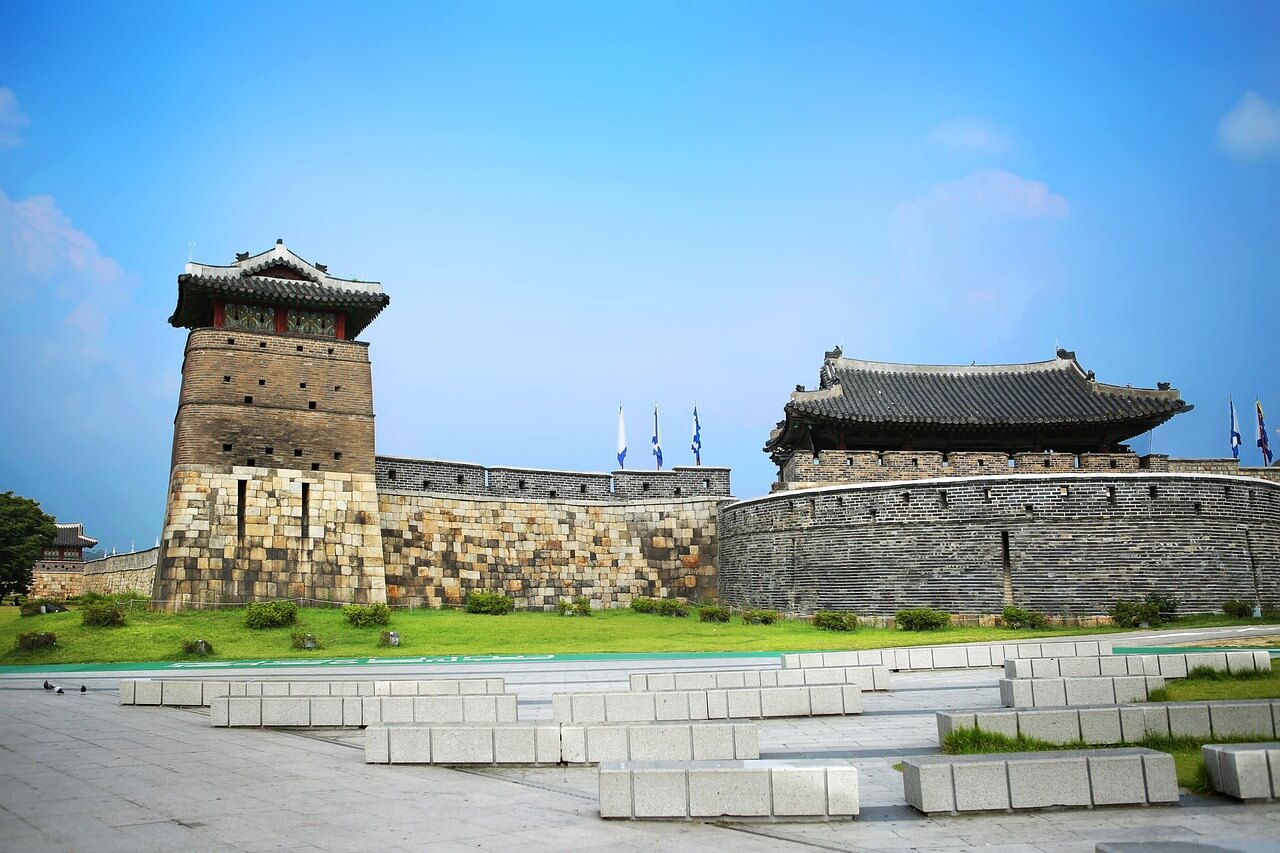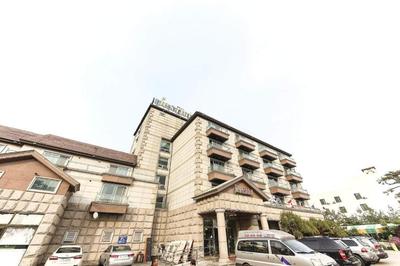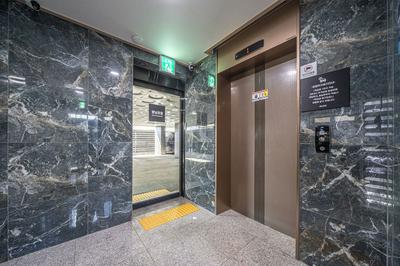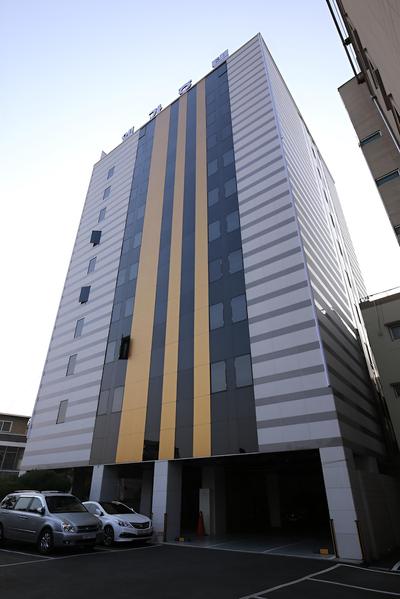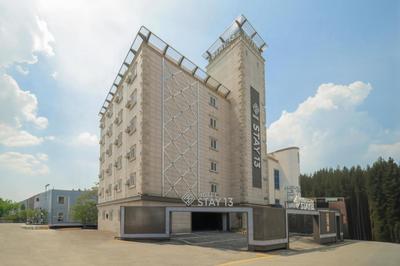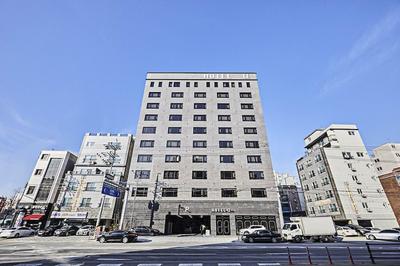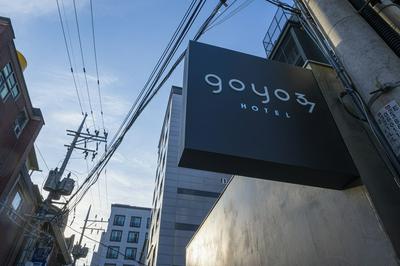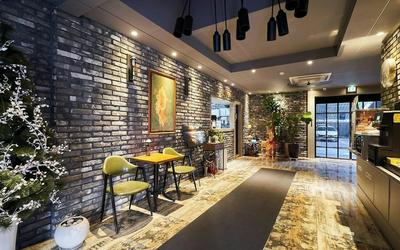When to visit Suwon?
Suwon enjoys a temperate climate, with four distinct seasons that offer a variety of experiences throughout the year. The best time to visit is during spring (April to June) and autumn (September to November), when the weather is mild, and the city's parks and historical sites are adorned with blooming flowers or vibrant fall foliage. Summer (July to August) tends to be hot and humid, but it’s also when festivals and outdoor events occur, making it lively yet sweltering. If you’re willing to brave the heat, you can experience local summer traditions and food festivals. Winter (December to February) can get quite cold, with temperatures dropping below freezing, but this season lends itself to a unique charm, especially around the holidays with festive decorations. Snow may occasionally transform the city into a winter wonderland, perfect for some cozy indoor exploration or enjoying a hot bowl of Suwon’s famed galbi jjim.
How to get to Suwon?
Suwon is easily accessible, making it a great destination for travelers. The city is located about 30 kilometers south of Seoul and serves as a vital transport hub in South Korea. The primary way to reach Suwon from other cities is via the Incheon International Airport, which is roughly 70 km away. From the airport, you can take a direct bus or hop on the Airport Railroad Express to Seoul Station, where you can transfer to the subway system for a ride to Suwon. Another convenient option is to catch an express bus from the airport directly to Suwon. If you prefer traveling by train, the KTX (Korea Train Express) offers rapid connections to Suwon from major cities, with travel times around 30 minutes from Seoul. For those with local stays, highways connect Suwon to other regional cities, and renting a car can grant more flexibility for exploration. Distances and average travel times are minimal, allowing for smooth transitions to and from the city.
Tourist activities in Suwon
Suwon is bursting with activities that combine cultural heritage with modern attractions. Begin your day with a visit to the impressive Hwaseong Fortress, a UNESCO World Heritage site, where you can walk along the ancient walls and enjoy scenic views. For an interactive experience, stop by the Korean Folk Village, which showcases traditional lifestyles through performances and hands-on exhibits. Nature enthusiasts can explore the peaceful paths of Suwon's parks, like Gwanggyo Lake Park, offering picturesque walking trails and serene spots for picnicking.
As the sun sets, the city comes alive with entertainment options. Check out the local shopping streets for unique finds, or delve into Suwon's bustling nightlife in the district near Hwaseong Haenggung Palace, where you’ll find bars and theme cafes. There are also cultural spots such as theaters and museums. Whether it’s a leisurely day exploring the vibrant streets, tasting local delicacies, or renting a bike to cruise around the fortress, Suwon offers a little something for every traveler.
Events and festivals
Suwon hosts a diverse array of festivals and events throughout the year, reflecting its rich cultural heritage. Each September, the Suwon Hwaseong Cultural Festival takes place, focusing on the history and construction of the Hwaseong Fortress with reenactments, performances, and traditional music. In May, the Suwon Strawberry Festival draws visitors who can indulge in sweet, fresh strawberries, participate in harvesting, and enjoy family-friendly activities.
Other notable events include the Suwon International Music Festival in July and the exciting Suwon Lantern Festival, which lights up the Cheongmicheon Stream every autumn, creating a magical atmosphere. Be sure to check local listings for temporary events or unique fairs, which often pop up to celebrate seasonal traditions. The vibrant local food markets also have their annual events, where you can immerse yourself in Suwon's culinary delights.
Family and kids activities
Suwon is family-friendly, offering a variety of activities for visitors with children. Start at the Korean Folk Village, where kids can enjoy traditional games, crafts, and performances. The delightful ambiance of the village makes it an educational yet fun outing. Another great family spot is the Suwon Zoo, located within the restfully green Suwon City Park. It features various animal exhibits and even a petting zoo.
For outdoor fun, Gwanggyo Lake Park is perfect for families. With its playgrounds, open spaces for running, and rental bikes, it's an excellent place for picnics and relaxation. Indoor entertainment can be relished at various museums, such as the Samsung Innovation Museum, where interactive exhibits engage younger visitors. Activities can be rounded off with a visit to Suwon's many cafés that cater to children with special menus and fun themes.
What to see in Suwon?
Suwon is rich in history and local charm, making it a city worth exploring. Key attractions include:
- Hwaseong Fortress: This UNESCO site stretches around the city, offering scenic views and insight into Joseon architecture.
- Korean Folk Village: A living museum that displays traditional Korean lifestyle with live performances and cultural experiences.
- Suwon Hwaseong Museum: A museum dedicated to the fortress, showcasing its history and significance.
- Gwanggyo Lake Park: A beautiful park perfect for walking, biking, and enjoying nature.
- Cheongmicheon Stream: A peaceful and scenic area lined with walking paths, ideal for a stroll.
- Samsung Innovation Museum: An interactive museum that explores the world of technology and innovation.
- Suwon City Hall: A modern architectural gem worth checking out.
These attractions contribute to Suwon's allure, blending history with contemporary experiences.
Accommodation in Suwon
Suwon offers diverse accommodation options catering to different budgets and preferences. For luxury travelers, hotels such as the Ramada Plaza Suwon boast impressive amenities and stunning city views. If you prefer boutique stays, consider charming lodgings near the Hwaseong Fortress that offer a local feel.
Budget travelers will find hostels and guesthouses in the city center, which create a friendly atmosphere and convenient access to the city's attractions. Moreover, mid-range hotels such as Novotel Ambassador Suwon provide comfort without breaking the bank. Neighborhoods like Paldal-gu are popular among visitors for their accessibility and vibrant atmosphere, making it easier to explore the best Suwon has to offer. Booking ahead during peak seasons is wise to secure the best places.
Important numbers and information
- Emergency Numbers: Police: 112, Fire Service: 119, Ambulance: 119
- Tourist Information Centers: Suwon City Hall Tourist Information Center
- Main Hospitals: Ajou University Hospital
- Airport Contact: Incheon International Airport: +82 32-743-8888
- Public Transport Info: Suwon Subway Line 1: +82 31-247-1101
- Taxi Apps: Kakao Taxi, T-map
- Currency and Payment Methods: South Korean Won (KRW), credit cards widely accepted
Where to eat?
Suwon’s dining scene is a flavorful reflection of Korean culture, known particularly for its galbi (grilled beef ribs). Don't miss trying the local specialty, Suwon Galbi, at any of the renowned barbecue joints in the city. For casual bites and street food, visit the bustling markets where you can enjoy tteokbokki (spicy rice cakes), hotteok (sweet pancakes), and kimbap (Korean sushi rolls).
The city features a mix of restaurants, from traditional hanok-style dining to modern establishments. Highly-rated spots like 'Bulgasari' serve authentic Korean dishes amidst charming décor. For a unique twist, seek out fusion cuisine options that blend Korean flavors with international influences. The average meal price can vary; you’ll find street snacks around 2,000 to 5,000 KRW, while a full restaurant meal ranges from 10,000 to 30,000 KRW.
Nightlife – where to go out?
Suwon’s nightlife offers a vibrant mix of bars, clubs, and local entertainment. The area around Hwaseong Haenggung is particularly lively, featuring a myriad of venues. Popular bars like 'Craftworks Taphouse' boast an extensive craft beer selection, while 'The Lounge' presents a cozy spot for cocktails with a view.
If you're in the mood to dance, clubs like 'VIVI Club' and 'Café del Mar' have lively atmospheres with DJs spinning both K-pop and international hits. The nightlife scene tends to peak on weekends, especially in Districts 1 and 2, where the streets buzz with social activity. Don't miss enjoying some late-night street food, which complements the evening festivities perfectly.
Transport and taxis
Suwon’s public transportation system is efficient and user-friendly, making it easy to navigate the city. The subway line connects key areas, and single journey tickets range around 1,250 to 1,500 KRW, with discounts for multiple rides. Buses also serve various routes, but keep a translation app handy for navigating the signs.
Taxis are a convenient option, and you can easily hail one from the street, though using taxi apps like Kakao Taxi is even more reliable. Expect fares to start around 3,800 KRW. Safety is generally good, but always stay aware of your surroundings, particularly at night.
- Subway Ticket Prices: 1,250 - 1,500 KRW
- Taxi App: Kakao Taxi
- Public Transport Hours: Generally operates from 5:30 AM until midnight
- Bus Prices: Around 1,200 KRW per ride
Parking and public garages
Parking in Suwon can be manageable if you know where to look. There are designated parking zones throughout the city, and most establishments either have parking available or nearby public garages. Parking rates generally range from 1,000 to 2,500 KRW per hour, with some locations offering flat daily rates. Check for paid parking signs to avoid fines.
It’s advisable to use parking apps where available to find real-time parking availability and prices. In busy districts, especially near marketplaces, be prepared for limited spots, so visiting during off-peak times may help your search.
Surroundings of Suwon?
The surroundings of Suwon offer numerous opportunities for day trips and exploration. Only a short train ride away is the serene city of Yongin, home to popular attractions like Everland Resort, South Korea's largest theme park, and the Korean Folk Village that expands on Suwon's cultural experiences.
Nature enthusiasts will appreciate trips to the beautiful hills of Gwangju, where you can hike scenic trails and breathe in fresh air. Visiting the nearby city of Hwaseong, known for its historical landmarks and vibrant local markets, is another great option. Each of these nearby locations enriches the Suwon experience, providing a blend of adventure, culture, and relaxation.
